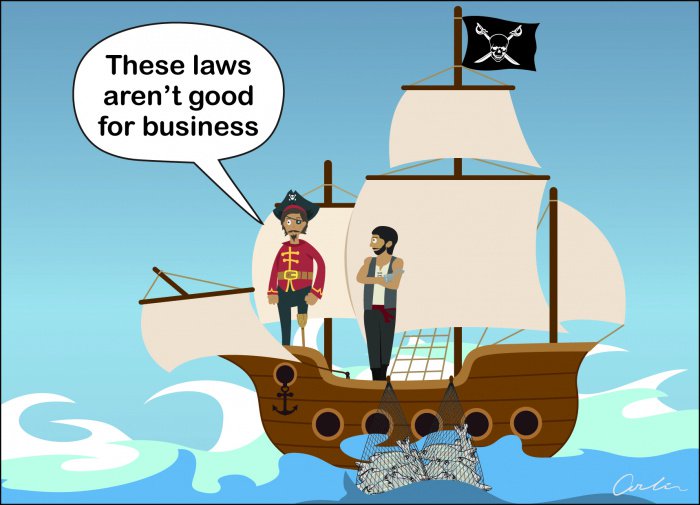Opinion: Fishing D-Day

PHUKET: It is too early to tell what the long-term ramifications of the recent crackdown on the Thai fishing industry will be, but there is no doubt that drastic change is needed to bring one of Thailand’s most notoriously rogue industries up to something approaching respectability by international standards.
The fishing industry was overdue for an overhaul long before the government invoked Article 44 of the interim charter to mandate changes that resulted in the establishment of its Command Center for Combating Illegal Fishing (CCCIF).
The CCCIF is now responsible for the enforcement of new ‘Port In-Port Out’ procedures and other oversight measures of the kind that have been in place for many years by most developed nations with major maritime fishing industries.
These include such basic requirements as fishing vessels having to be registered and licensed as such. They also require that vessels over 30 tons be outfitted with Vessel Monitoring System equipment, allowing their movements to be accurately tracked by authorities for the very first time.
Given decades of lax oversight by the Department of Fisheries, it is not surprising that so few vessels and crews were able to comply with the regulations that took effect on July 1.
Nationwide, an estimated 3,000 mid-sized fishing vessels in 22 coastal provinces reportedly failed to comply with the measures as the deadline drew near.
Some fishing businesses have been lobbying the government for more time to meet the requirements.
The Gazette hopes that the government will listen to their concerns, but not back down on the main objective of establishing a baseline for oversight on an industry that has done so much damage to fish stocks and the maritime environment, not to mention its starring role in Thailand’s plummeting reputation among human rights observers.
If the regulations can be enforced – and we realize this is indeed a big ‘if’ – they will no doubt have a considerable impact on the domestic seafood industry, with ripple effects across the Thai economy.
The good news for operators who do comply might be a period with drastically reduced competition, reduced total catch and increased profits from higher prices at dockside.
If enforcement results in a period of reduced catch, it would give seafood stocks a period to replenish their numbers. In the longer term, enforcement will lead to better environmental practices offshore, a better reputation for Thailand, and a more sustainable industry overall.
Latest Thailand News
Follow The Thaiger on Google News:


























